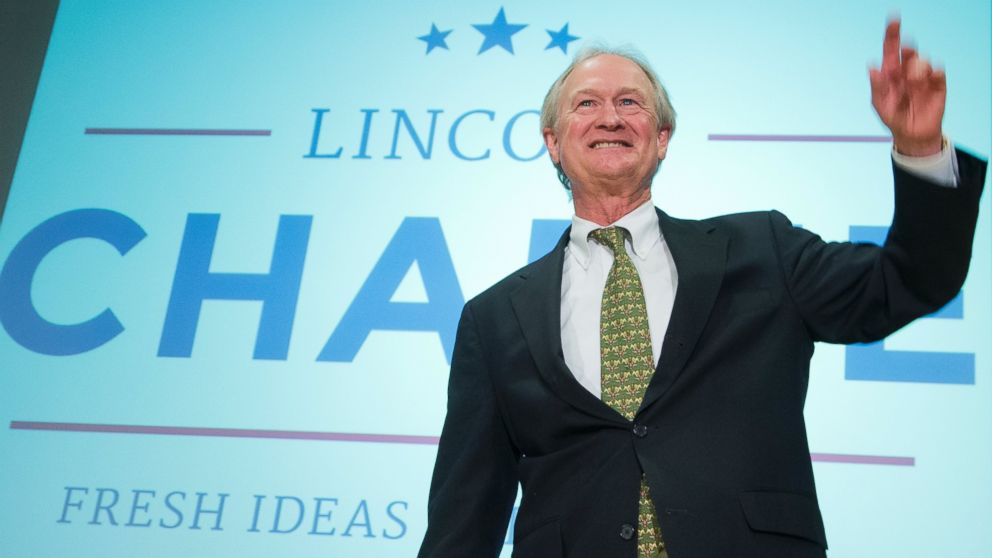America's Top Metric System Enthusiast Just Found Out About Lincoln Chafee's Presidential Platform
"Let's join the rest of the world and go metric," Chafee said.

— -- When Lincoln Chafee announced that he planned to run for President of the United States on a platform that, among other things, pushes the metric system, it was an immeasurable surprise to Don Hillger.
In fact, Hillger, who is the president of the U.S. Metric Association and also a meteorologist at Colorado State University, didn’t know the latest candidate for the Democratic presidential nomination at all.
Until now.
“I do not know Chafee nor his plans, but they are a pleasant surprise to us,” Hillger told ABC News in an email today. “It is bringing metric into the media and to the public like it has not been for some time.”
The former Rhode Island governor announced Wednesday he was running for president and listed a number of ways he would seek to change the country if elected.
“Let’s join the rest of the world and go metric,” Chafee said. Referring to the time he lived in Canada, he added, “It's easy. ... It doesn't take long before 34 degrees is hot.”
Enthusiasts are quick to cite a number of reasons why the U.S. should move from inches to centimeters and pounds to kilos, including the fact that the vast majority of the world is on the metric system, also known as the "system international."
The only other holdouts are Burma and Liberia. Supporters also argue that the system, with a neat decimal system rather than fractions, is easier and already common practice in medicine and science. In 1999, NASA admitted that it likely lost its $125 million Mars Climate Orbiter because of the confusion of two systems.
Congress has authorized a number of reports to look into the possible conversion. One study in 1968, “A Metric America: A Decision Whose Time Has Come,” concluded the country would and should eventually go metric for the sake of U.S. commerce, technological development and trade. In 1975, Congress passed a voluntary metric conversion bill, but stopped short of forcing the changeover. The National Institute of Standards and Technology urged the issue again in 1997, writing, “Failure to complete the change will increasingly handicap the nation’s industry and economy.”
So, how much would it cost to change every road sign and every scale across the country?
Hillger said no one really knows.
“We can say this, when other countries and companies have converted, the costs were way overestimated,” he told ABC News. “And, don’t forget, that there are costs as well, associated with not going metric: loss of market due to products not accepted by the rest of the world when they are not built to metric standards or labeled in metric.”
For the moment, Hillger does not have plans to contact Chafee, “but it might happen, being the large amount of interest in this topic right now.”